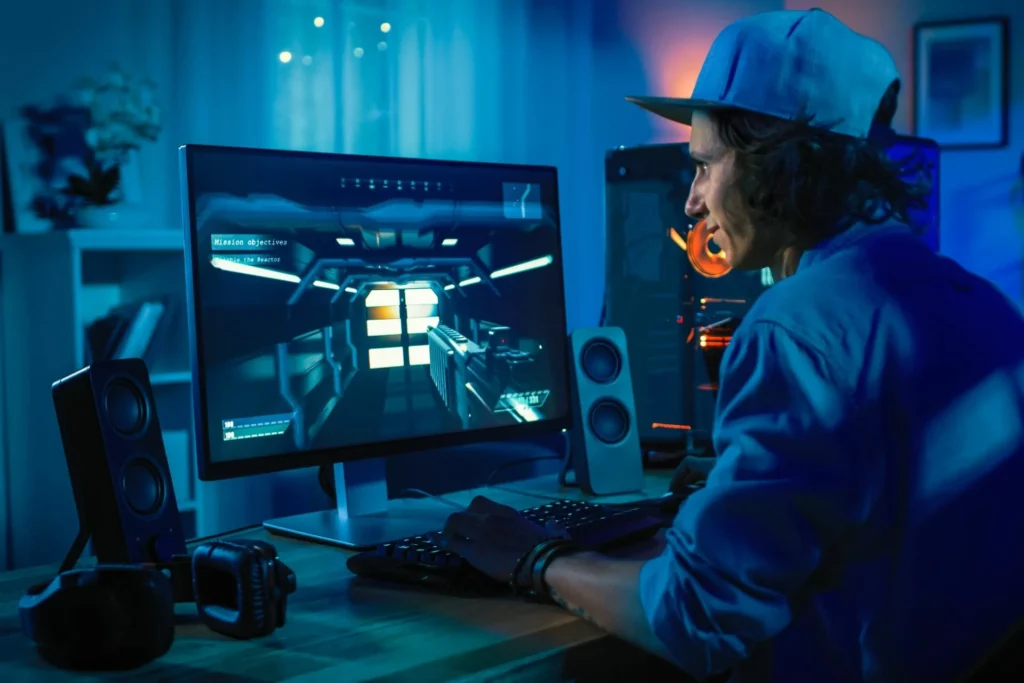Introduction: A New Era of Competition
In the dynamic landscape of technological advancement, the rise of machine vs. machine tournaments marks a revolutionary shift in competitive arenas. These AI-driven contests, where algorithms and robotic systems engage in battles of strategy, speed, and skill, are becoming the frontier of innovation. From gaming to industrial applications, the implications of these competitions are profound, heralding a future where AI not only complements human endeavors but also pioneers new realms of achievement.
The Evolution of AI Competitions
From Chess to AlphaGo: The Historical Milestones
The journey of AI in competitive gaming began with seminal moments like IBM’s Deep Blue defeating world chess champion Garry Kasparov in 1997. This victory was not just a triumph of machine over human but a precursor to more complex AI challenges. The watershed moment came in 2016 when DeepMind’s AlphaGo defeated Lee Sedol, a world champion in the ancient game of Go. This victory was significant because Go’s complexity far exceeds that of chess, showcasing AI’s potential to master intricate and abstract strategic thinking.
The Transition to Autonomous AI Tournaments
With these milestones, the stage was set for AI vs. AI competitions. These tournaments are no longer just about pitting a machine against a human but involve sophisticated algorithms battling each other. This evolution reflects the growing capabilities of AI systems and the increasing interest in exploring their limits in controlled competitive environments.
The Mechanics of AI-Driven Tournaments
Designing AI Algorithms for Competition
At the heart of AI-driven tournaments are the algorithms that power the competing entities. These algorithms are designed with specific goals and capabilities, ranging from basic rule-following to advanced learning and adaptation. Machine learning and deep learning techniques play a crucial role, enabling AI systems to learn from their experiences, improve their strategies, and adapt to their opponents’ tactics.
The Role of Simulation and Real-Time Processing
AI tournaments rely heavily on simulation environments where algorithms can be tested and refined. These simulations replicate real-world conditions, allowing AI to develop and test strategies without the constraints of physical limitations. Real-time processing is another critical aspect, as it enables AIs to make instantaneous decisions based on dynamic data inputs, ensuring that the competition remains fluid and unpredictable.
Key Sectors Embracing AI Competitions
Gaming Industry: Pioneering AI Tournaments
The gaming industry has been at the forefront of adopting AI-driven competitions. PC game development services have increasingly integrated AI to enhance player experiences, create challenging opponents, and develop autonomous game characters. Esports tournaments featuring AI competitors are gaining popularity, providing a new dimension to spectator sports where viewers can witness AI strategies and adaptations in real-time.
Industrial and Robotics Applications
Beyond gaming, AI competitions are making significant inroads in industrial applications. In manufacturing, logistics, and robotics, AI-driven tournaments serve as testing grounds for developing more efficient and robust systems. These competitions encourage innovation by pushing AI to optimize processes, improve precision, and reduce operational costs.
The Impact on PC Game Development Services
Enhancing Game AI for Better User Experience
The rise of AI tournaments has a direct impact on PC game development services. Developers are now focused on creating more sophisticated AI opponents that can provide a challenging and engaging experience for players. This requires advanced AI programming, incorporating machine learning algorithms that allow game characters to learn from players’ actions and adapt their strategies accordingly.
Competitive AI as a Selling Point
Games featuring advanced AI competitors can attract a broader audience, including those interested in the technological aspects of AI. Marketing games with competitive AI elements can differentiate them in a crowded market, appealing to tech enthusiasts and gamers looking for a unique challenge. This trend is encouraging developers to invest in AI research and development, further driving innovation in the gaming industry.
Ethical Considerations in AI Competitions
Fairness and Transparency
As AI-driven tournaments become more prevalent, ethical considerations must be addressed. Ensuring fairness in these competitions is paramount. This involves transparency in how AI algorithms are designed and how competitions are conducted. It also requires oversight to prevent any form of bias or manipulation that could undermine the integrity of the contests.
The Human Element: Ensuring Inclusivity
While machine vs. machine competitions highlight the prowess of AI, it’s crucial to maintain a human element. This includes ensuring that AI development remains inclusive, with diverse teams contributing to algorithm design and ethical considerations. Additionally, public engagement and education about AI technologies can help demystify these competitions and foster a broader understanding of their implications.
Future Prospects of AI Tournaments
Expanding into New Domains
The future of AI-driven tournaments is bright, with potential expansions into various domains. In healthcare, for example, AI competitions could drive innovations in diagnostic algorithms and treatment planning. In finance, AI tournaments could develop more sophisticated trading algorithms that adapt to market fluctuations in real-time.
Collaborative AI: Beyond Competition
Another exciting prospect is the shift from purely competitive AI to collaborative AI. This involves developing AI systems that can work together to solve complex problems, combining their strengths to achieve common goals. Collaborative AI tournaments could revolutionize fields such as disaster response, climate modeling, and scientific research, where the synergy of multiple AI systems can lead to breakthroughs.
Conclusion:
The rise of machine vs. machine tournaments represents a significant milestone in the evolution of AI. These competitions are more than just spectacles; they are testbeds for innovation, pushing the boundaries of what AI can achieve. As we continue to explore the potential of AI-driven tournaments, the collaboration between human ingenuity and machine intelligence will undoubtedly shape the future of numerous industries. By embracing these advancements, we can unlock new possibilities, drive technological progress, and ultimately enhance our understanding of the world around us.


